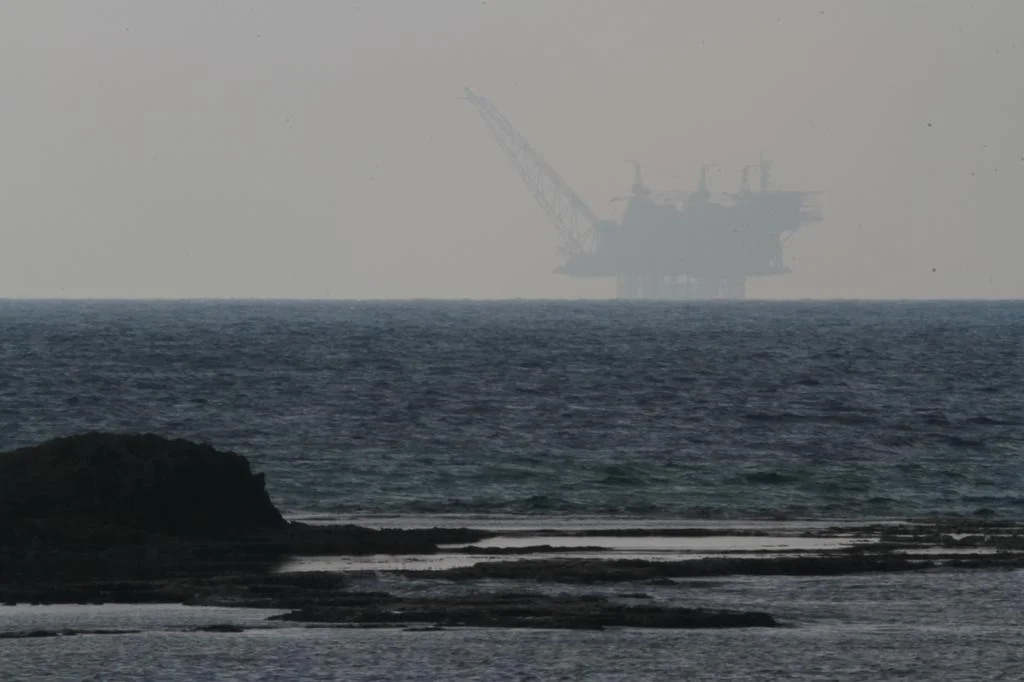Jerusalem, 27 October, 2025 (TPS-IL) — Chevron Group announced Sunday that it has finalized a major gas export deal to Egypt, marking another milestone in Israel’s expanding natural gas industry. The agreement clears the way for construction of the Nitzana project — a new pipeline linking Israel’s and Egypt’s gas transmission systems — and for a multibillion-dollar expansion of the Leviathan gas field.
According to the Ministry of Energy, the Leviathan partners, led by Chevron, will hold 41.8% of the Nitzana project, with the remainder allocated to the Tamar partners and Energean. NewMed Energy, one of Chevron’s local partners, said in a statement that Leviathan’s share of the project’s estimated $278 million construction budget amounts to roughly $116 million. Chevron’s total financing obligation for its shares in the Leviathan and Tamar fields is about $254 million.
The 65-kilometer Nitzana pipeline will connect Israel’s transmission grid from Ramat Hovav in the Negev to the Egyptian border, increasing Israel’s export capacity to Egypt by roughly six billion cubic meters (bcm) per year. The project, managed by state-owned Israel Natural Gas Lines (INGL), is designed to begin operations within three years of the agreement’s final approval.
“The flow of gas under the Transmission Agreement shall commence no later than 36 months from the date of fulfillment of the conditions precedent,” NewMed said.
Chevron, on behalf of the Leviathan partners, signed an amendment to the Transmission Agreement to reflect the updated allocation. “To the best of the partnership’s knowledge, the other exporters also signed transmission agreements with INGL in respect of their allocated shares, thereby satisfying the conditions precedent,” NewMed stated in its filing.
The Transmission Agreement, valid for 15 years and extendable by five, guarantees Leviathan nearly 176 billion British thermal units of firm transmission capacity, with the option to ship additional volumes if space allows. Before exports to Egypt begin, Chevron may divert gas temporarily to Jordan through the Jordan North pipeline.
The export arrangement is part of a broader $2.5 billion Leviathan expansion plan that includes laying a third subsea pipeline and boosting output to meet growing regional demand. The deal with Egypt’s Blue Ocean Energy, which was amended earlier this year, increases total Leviathan exports by 130 bcm — valued at about $35 billion. Deliveries of the expanded quantities are expected to begin after the completion of both the Leviathan expansion and the Nitzana pipeline, currently projected for 2029.
One of the world’s largest deep-water natural gas discoveries, Leviathan began pumping gas to Israel in 2019. Chevron operates the Leviathan field with a 39.66% stake, alongside NewMed Energy (45.34%) and Ratio Energies (15%). The gas field holds an estimated 600 bcm in reserves and is expected to sustain production through at least 2064.
In the largest export deal in Israel’s history, NewMed Energy and its Leviathan partners signed a $35 billion agreement with Egypt’s Blue Ocean Energy to supply 130 billion cubic meters of natural gas through 2040, expanding on a previous deal that began in 2020. The two-phase agreement will increase Leviathan’s annual production capacity from 14 to 21 bcm, supported by new pipelines — including one via Nitzana — and infrastructure upgrades such as a third subsea line and expanded transmission routes to Egypt. Pegged to Brent crude prices, the deal awaits an export permit and final investment decision tied to the Leviathan Expansion Project.
Meanwhile, Israel Shipyards announced it had signed a 10-year, NIS 200 million ($61.3 million) logistics contract with Chevron, beginning August 2025. The deal covers facility use, storage, personnel, and transport services. The company said the agreement “indicates the deepening of business cooperation” with Chevron.
However, the energy sector also saw a setback. The Tamar partnership’s memorandum of understanding with the Israel Electric Corporation (IEC) was canceled amid a dispute over gas pricing. The IEC insisted on maintaining the original price of about $5.50 per energy unit under a historic agreement. Although Chevron and its partners initially accepted that framework, they later reversed course.
































